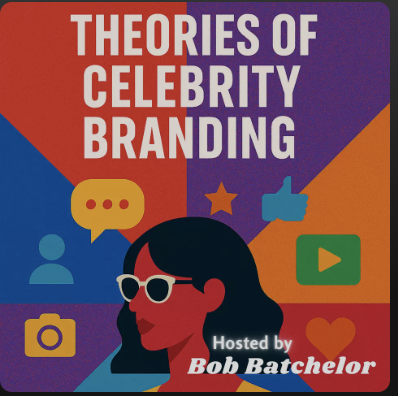The Gatsby Code eBook just $2.99
When The Great Gatsby surges back into the news, we are reminded once again that America’s most shimmering and elusive novel still haunts the culture—class, ambition, desire, the fragile scaffolding of the American dream.
The Gatsby Code: A Century of Dreams and Disillusion by award-winning cultural historian Bob Batchelor
To celebrate the conversation (and help more readers join it), Tudor City Books has dropped the price of eBook to $2.99 on Amazon for a limited time.
If you’ve been meaning to revisit Gatsby’s world—or explore why the novel keeps gripping us a century on—now’s the moment. More than just a literary analysis or criticism, The Gatsby Code is a century-spanning cultural biography of a novel and its enigmatic protagonist. From Gatsby’s humble roots as James Gatz in North Dakota to his glittering rise and tragic fall in West Egg, Bob Batchelor decodes the psychological and sociological layers of Fitzgerald’s antihero and the America he both embraced and exposed.
Bob Batchelor has written a powerful study of The Great Gatsby and its ability to resist the erosion and forgetfulness of time...and discovers a Gatsby we had never seen before—wounded and alone. — Jerome Charyn, author of Maria La Divina, a novel of Maria Callas
Bottom line: Gatsby’s back in the conversation—jump in while the eBook is just $2.99. Get the The Gatsby Code eBook today!
Also in Book News: Stan Lee: A Life (Paperback) Out in Time for the Holidays!
Bloomsbury Academic has released the paperback, Expanded Centennial Edition of Stan Lee: A Life—a full portrait of Marvel’s tireless ambassador from Depression-era New York to global icon. Early praise called it “respectful, well-sourced…may be the best of the bunch” (Booklist) and “exceptionally well written…an extraordinary biography” (Midwest Book Review).
Stan Lee: A Life by Bob Batchelor, Foreword by Blink-182 and To The Stars* icon Tom DeLonge
Paperback details: 264 pages • ISBN-13: 979-8881808860 • List: $16.95
Order & save: Use code GLR BD8 at Bloomsbury.com for 20% off.
About Bob Batchelor
I write about the people and stories that shape American culture—icons who cross generations and mediums. I’ve published 16 books (and edited 19) on subjects ranging from The Great Gatsby and Mad Men to Jim Morrison and Prohibition kingpin George Remus. My work has appeared in or been featured by the New York Times, BBC, Los Angeles Times, The Guardian, PBS, and NPR. I’m an Assistant Professor of Communication, Media, & Culture at Coastal Carolina University. More at bobbatchelor.com.









